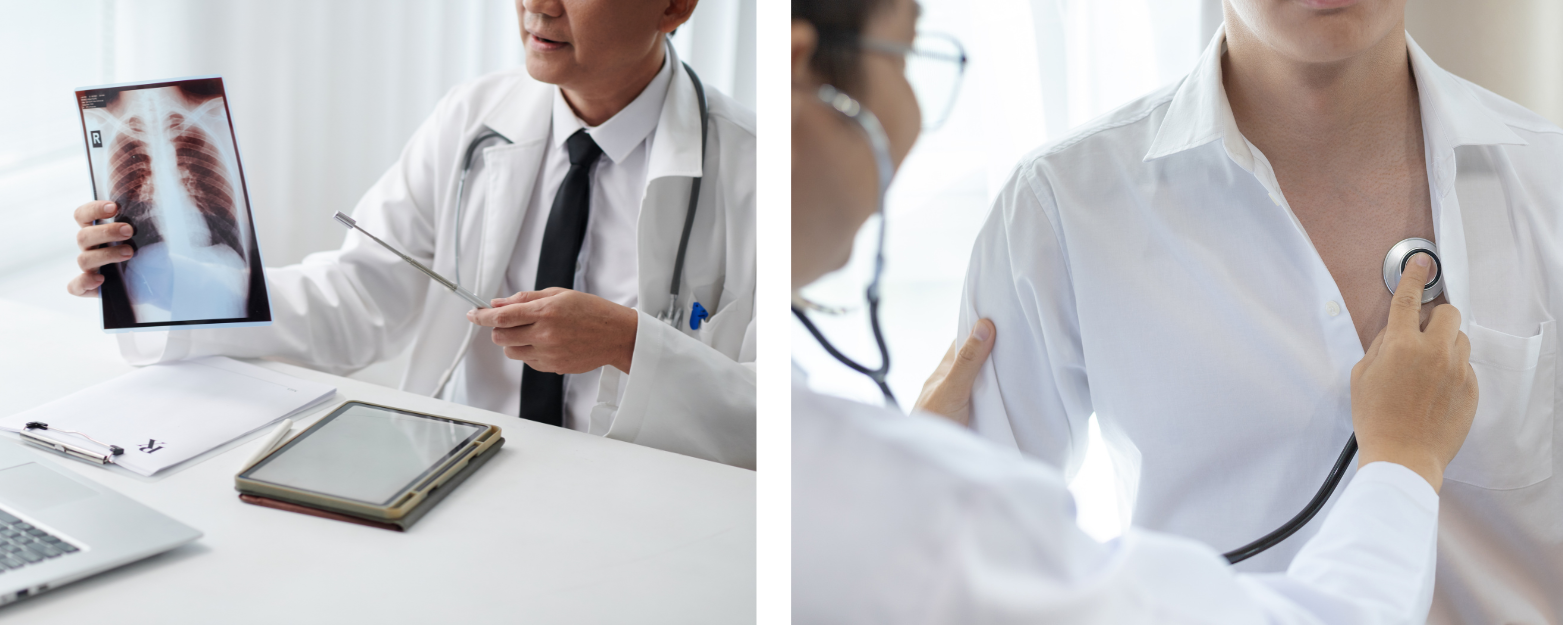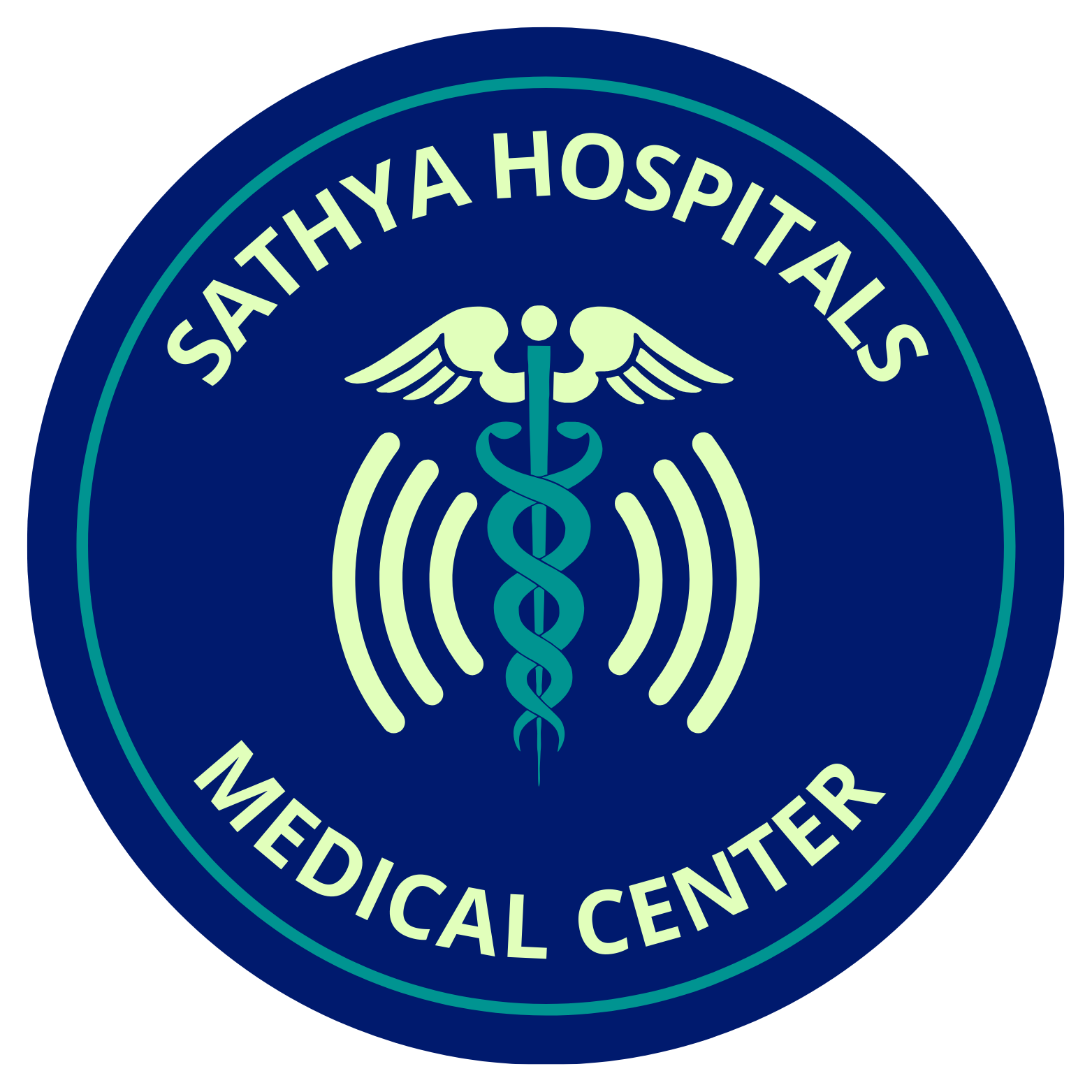Pulmonology is a medical specialty focused on the prevention, diagnosis, treatment, and management of diseases affecting the respiratory system, which includes the lungs, airways (trachea, bronchi, bronchioles), and related structures like the diaphragm and chest wall. Pulmonologists are specialists trained to handle conditions ranging from acute respiratory infections to chronic lung diseases, often working in outpatient clinics, inpatient wards, and intensive care units (ICUs) for critical cases. This specialty is critical for hospitals like Sathya Hospitals, as respiratory conditions are prevalent and require both routine and emergency care.
Scope of Pulmonology
- Conditions Treated: Pulmonology addresses a wide range of respiratory disorders, including:
- Chronic Obstructive Pulmonary Disease (COPD): Includes emphysema and chronic bronchitis, often linked to smoking or environmental exposures.
- Asthma: A chronic condition causing airway inflammation and breathing difficulties, triggered by allergens, exercise, or stress.
- Pneumonia: Acute lung infection caused by bacteria, viruses, or fungi, leading to fever, cough, and breathing issues.
- Tuberculosis (TB): An infectious disease primarily affecting the lungs, treatable with long-term antibiotics. Sri Sathya Sai General Hospital, for instance, manages TB as part of its general medicine services.
- Lung Cancer: Diagnosis and management of malignant lung tumors, often requiring coordination with oncology.
- Interstitial Lung Diseases: Conditions like pulmonary fibrosis causing lung scarring and reduced oxygen transfer.
- Pulmonary Hypertension: High blood pressure in lung arteries, leading to shortness of breath and heart strain.
- Sleep Apnea: A disorder causing interrupted breathing during sleep, often managed with CPAP devices.
- Acute Respiratory Distress Syndrome (ARDS): Severe lung condition requiring ICU care, often seen in critical cases.
- Bronchiectasis: Chronic widening of airways leading to mucus buildup and infections.
- Patient Demographics: Pulmonology serves all age groups, from pediatric asthma cases to elderly patients with COPD or pneumonia. It’s especially relevant in areas with high air pollution or smoking prevalence, which may apply to regions like Kanpur or Chennai.
- Care Settings: Outpatient clinics for chronic management, inpatient wards for severe cases, and emergency departments for acute respiratory failure or infections.
Diagnostic Methods
Pulmonologists use advanced tools to diagnose respiratory conditions accurately:
- Pulmonary Function Tests (PFTs): Measures lung capacity and airflow to diagnose asthma, COPD, or restrictive lung diseases.
- Chest X-rays and CT Scans: Imaging to detect infections, tumors, or structural abnormalities. Sri Sathya Sai General Hospital performed 995 X-rays in 2016-17, some likely for respiratory cases.
- Bronchoscopy: A procedure using a camera-equipped tube to visualize airways, diagnose infections, or biopsy tumors.
- Sputum Analysis: Tests mucus for infections like TB or bacterial pneumonia.
- Arterial Blood Gas (ABG) Test: Measures oxygen and carbon dioxide levels to assess lung function in critical cases.
- Sleep Studies (Polysomnography): Diagnoses sleep apnea by monitoring breathing during sleep.
- Thoracentesis: Removes fluid from the pleural space around the lungs for diagnostic or therapeutic purposes.
Treatment Methods
Treatment varies based on the condition and severity:
- Medications:
- Inhaled bronchodilators and corticosteroids for asthma and COPD.
- Antibiotics for bacterial pneumonia or TB.
- Chemotherapy or immunotherapy for lung cancer.
- Oxygen Therapy: For patients with low blood oxygen levels, common in COPD or pulmonary fibrosis.
- Pulmonary Rehabilitation: A program combining exercise, education, and support to improve quality of life for chronic lung disease patients.
- Mechanical Ventilation: Used in ICUs for patients with respiratory failure, such as ARDS or severe pneumonia.
- Surgical Interventions:
- Lung biopsy or resection for cancer or severe bronchiectasis.
- Lung volume reduction surgery for advanced COPD.
- Pleurodesis for recurrent pleural effusions.
- Lifestyle Interventions: Smoking cessation programs, dietary advice, and breathing exercises to manage chronic conditions.
- Sleep Apnea Devices: Continuous Positive Airway Pressure (CPAP) machines for sleep apnea management.



